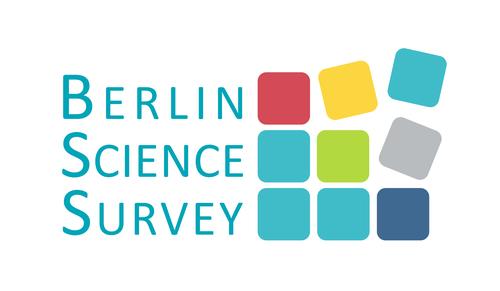High Pressure to Publish
In the Berlin Science Survey Researchers Estimate Their Research Situation
News from Aug 30, 2022
In research, the pressure to publish is high. To meet the expectations, researchers devote significantly less time to other tasks such as good teaching or open science – although they also rate these goals as especially important. These are the results of the Berlin Science Survey, a recent study among researchers in the integrated research environment of Berlin – conducted by the Berlin University Alliance.
95% of the researchers in the poll stated that the goal of "methodological rigor" should have a higher significance in the academic system, 85% see this for the goal of "good teaching". "Publication output," on the other hand, ranks last: here, the majority of 72% believe it should not be an overriding goal. When it comes to the pressure of expectations that researchers feel, however, the picture is reversed: Almost 90% experience high pressure to publish, but not even one in four respondents feels that they are exposed to high expectations with regard to the goals of "open science" and "good teaching". In research practice, this leads to publication output being prioritized over other tasks, even though these goals are considered more important by researchers in principle. The researchers of the Berlin Science Survey project take a critical view of this discrepancy between the researchers' own goals and the expectations that are usually imposed by evaluation procedures. "It can lead to an unnecessary burden on researchers as well as have a negative impact on the quality of research and teaching.The various effects of incentive structures in the academic system are the subject of the project and will be further investigated by us," says Principal Investigator Dr. Jens Ambrasat.
Actively Shaping the Integrated Berlin Research Environment
The Berlin Science Survey is a recurring online survey of researchers at the partner institutions of the Berlin University Alliance and research institutions not affiliated with academia of the Berlin Research 50 (BR50), which was conducted for the first time from November 2021 to February 2022 with over 1,000 participants. The basic report was recently published. More in-depth evaluations on individual topics such as collaborations, open science, knowledge transfer and research quality will appear successively in the coming months. It is planned to repeat the survey every two years to ascertain the experiences and opinions of researchers in the integrated research environment and to identify trends in research practices, discourses, and in the attitudes of researchers.
The Berlin Science Survey is funded by the Berlin University Alliance and conducted by the Robert K. Merton Zentrum für Wissenschaftsforschung. The project deals with the change of research culture(s) in the integrated research environment of Berlin and possible effects of research policy control on the attitudes and practices of researchers.
The spokesperson of the Berlin University Alliance, Prof. Dr. Peter Frensch, comments: "It is in the interest of the four partner institutions of the BUA to integrate the perspectives of researchers in the quality assurance processes for research and teaching."
Among other things, the BUA has set itself the goal of improving the instruments of research evaluations and ensuring quality in the long term. Future surveys within the framework of the Berlin Science Survey should show to what extent this is actually successful from the perspective of the researchers concerned.

